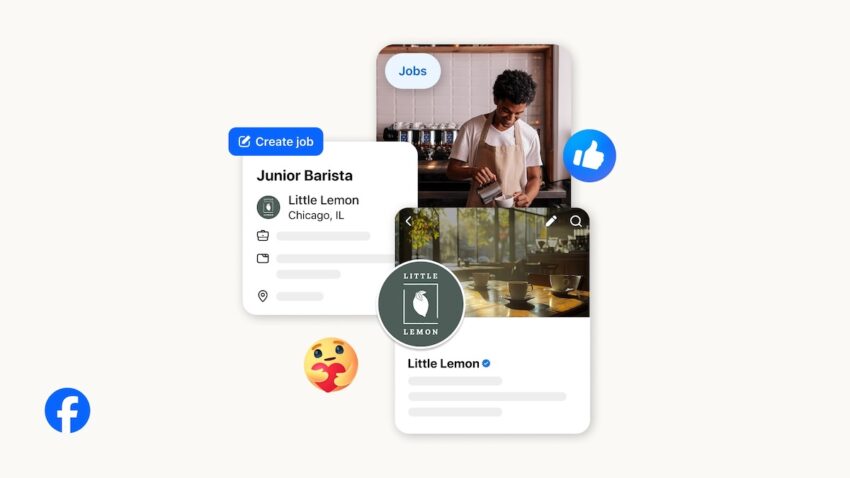
facebook brings back job listings in the Facebook has announced the reintroduction of job listings for users in the United States, targeting entry-level, trade, and service positions.
facebook brings back job listings in the
Background on Facebook’s Job Listings
Facebook, now operating under the parent company Meta Platforms, Inc., has a long history of facilitating job searches through its platform. Initially launched in 2017, the job listing feature allowed businesses to post job openings directly on their company pages, enabling users to apply easily. However, the feature was temporarily removed in 2020 amid various changes and challenges faced by the platform, including shifts in user engagement and the evolving landscape of online job searching.
The decision to bring back job listings comes at a time when many individuals are seeking employment opportunities in a recovering economy. The COVID-19 pandemic significantly altered the job market, leading to an increase in remote work and a shift in the types of jobs that are in demand. As businesses adapt to these changes, Facebook aims to provide a platform that connects job seekers with potential employers.
Targeted Job Categories
The reintroduced job listings will primarily focus on three categories: entry-level positions, trade jobs, and service roles. This strategic focus reflects the current job market dynamics, where many individuals are looking for accessible employment options that do not necessarily require extensive experience or specialized education.
Entry-Level Positions
Entry-level jobs are crucial for new graduates and individuals re-entering the workforce. These positions often serve as stepping stones for career advancement. By emphasizing entry-level roles, Facebook is catering to a demographic that includes recent graduates, young professionals, and those transitioning from other fields. The availability of such positions can help reduce unemployment rates and provide individuals with valuable work experience.
Trade Jobs
Trade jobs encompass a wide range of skilled positions, including electricians, plumbers, and carpenters. These roles are essential to the economy and often face a shortage of qualified candidates. By featuring trade jobs, Facebook is addressing a critical need in the labor market. Many trade positions offer competitive salaries and benefits, making them attractive options for job seekers.
Service Jobs
Service jobs, which include roles in hospitality, retail, and healthcare, are another focus area for Facebook’s job listings. The service industry has been significantly impacted by the pandemic, with many businesses struggling to find workers. By promoting service jobs, Facebook aims to support the recovery of this sector and help businesses fill essential roles that contribute to their operations.
Implications for Job Seekers and Employers
The reintroduction of job listings on Facebook has several implications for both job seekers and employers. For job seekers, the platform provides a familiar environment to search for opportunities. Many users already spend significant time on Facebook, making it a convenient option for job hunting. Additionally, the integration of job listings into the social media experience may encourage users to explore new career paths and connect with potential employers.
For employers, particularly small businesses and local companies, Facebook’s job listings offer a cost-effective way to reach a broad audience. The platform’s extensive user base allows businesses to target specific demographics and geographic areas, increasing the likelihood of finding suitable candidates. This is particularly beneficial for industries that rely on local talent, such as hospitality and retail.
Stakeholder Reactions
The reintroduction of job listings has garnered mixed reactions from various stakeholders in the job market. Some industry experts view this move as a positive development, emphasizing the importance of leveraging social media to connect job seekers with employers. They argue that Facebook’s vast reach can help bridge the gap between job openings and potential candidates, particularly in underserved communities.
However, there are concerns regarding the effectiveness of job listings on social media platforms. Critics argue that while Facebook may attract a large audience, the quality of applicants may vary. Some job seekers may not be serious about their applications, leading to a higher volume of unqualified candidates. Employers may need to implement additional screening processes to ensure they find the right fit for their organizations.
Comparison with Other Job Platforms
Facebook’s reintroduction of job listings places it in direct competition with established job search platforms such as LinkedIn, Indeed, and Glassdoor. Each of these platforms has its unique features and advantages, catering to different segments of the job market.
LinkedIn is widely recognized as a professional networking platform, making it a popular choice for job seekers and employers alike. Its focus on professional connections and career development sets it apart from Facebook. LinkedIn allows users to showcase their skills and experiences, making it easier for employers to find qualified candidates. However, Facebook’s advantage lies in its massive user base, which may attract a different demographic of job seekers.
Indeed and Glassdoor
Indeed and Glassdoor are dedicated job search platforms that provide users with access to a vast array of job listings. Both platforms offer features such as company reviews and salary information, helping job seekers make informed decisions. While Facebook’s job listings may not provide the same level of detail, the integration of social media elements could enhance user engagement and encourage more casual job seekers to explore opportunities.
Future Prospects for Facebook’s Job Listings
The future of Facebook’s job listings will depend on several factors, including user engagement, the effectiveness of the platform in connecting job seekers with employers, and the overall job market landscape. As businesses continue to adapt to changing economic conditions, Facebook may need to refine its approach to job listings to remain competitive.
One potential avenue for growth is the integration of advanced technologies, such as artificial intelligence (AI) and machine learning, to enhance the job search experience. By leveraging these technologies, Facebook could provide personalized job recommendations based on users’ profiles and preferences, increasing the likelihood of successful matches between job seekers and employers.
Conclusion
The reintroduction of job listings on Facebook marks a significant development in the platform’s efforts to support job seekers and employers in the United States. By focusing on entry-level, trade, and service jobs, Facebook aims to address the current needs of the job market while leveraging its extensive user base. As the platform navigates the competitive landscape of job search services, its success will depend on its ability to connect users with meaningful employment opportunities and adapt to the evolving demands of the workforce.
Source: Original report
Was this helpful?
Last Modified: October 15, 2025 at 6:36 am
1 views















